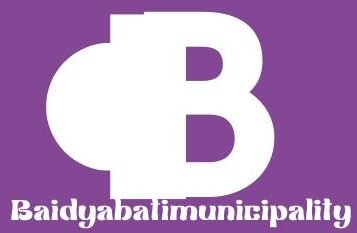Labor’s Chancellor Rachel Reeves announced the plan for major welfare system reforms which focus on sick benefits and fraud to solve what she identifies as Britain’s unemployment issue. These reforms will serve three main purposes: they will reward employment while relieving public taxation while also restricting benefits fraud.
Reeves presented this view in The Sun on Sunday because she estimated that the number of people who could not work because of health reasons was 2.8 million and she predicted 420,000 extra households would sign up for Universal Credit by 2030. Various groups in public life and political circles react to the proposed changes through both concerned and interested responses.
Overhauling Benefits

The welfare system transformation under Reeves involves cutting down support benefits for people who cannot work because of their poor health. Personal Independence Payments (PIP) serve as the key target for benefit cuts even though the exact effects on specific benefits remain vague after ministerial plans to use vouchers instead of cash benefits. The authorities present this reform as a mechanism to protect public funds from improper distribution while also preventing misuse.
The Get Britain Working White Paper represents part of a wider reorganizational approach that changes the Department of Work and Pensions (DWP) into a “Department for Work.” The program focuses on employment promotion while refraining from providing assistance to those who do not require help. Reeves declared that the country must stop paying ever-growing unemployment costs.
Fraud Crackdown

A significant aspect of the reforms is tackling welfare fraud, with Reeves vowing to introduce the “biggest welfare fraud and error package in recent history.” Measures include:
Revoking Driving Licences: Individuals accused of cheating the system may lose their driving privileges.
Direct Bank Withdrawals: Those refusing to repay fraudulently claimed benefits could see money removed directly from their bank accounts.
New Fraud Powers: The forthcoming Public Authorities (Fraud, Error, and Recovery) Bill will grant authorities additional powers to recover funds, with a goal of recouping £1.5 million over five years.
Through public declarations Reeves has established his position on tax fairness that no one should misuse the system without facing justice. Liz Kendall who serves as Work and Pensions Secretary explained that the new approach will have independent control systems to stop the abuse of power within the benefits system.
Implications

Different groups express multiple opinions about the changes made to welfare programs. The reforms implement work-based strategies while implementing anti-fraud measures to build trust in public welfare systems according to supporters. Strictened requirements for sickness benefit eligibility worry critics due to their potential to cause devastating harm to valid benefit recipients unable to work.
The full effects of these new measures will not be known until the future but Reeves’ drive to transform the system illustrates Labour Party’s wider economic restructuring plan. The proposed welfare modifications link assistance initiatives to employment targets in order to decrease public benefit usage while maintaining financial support for taxpayers.
By using this statement Reeves signals a Labour government commitment to clamp down on people who evade system rules. Striking a proper equilibrium between assisting needy individuals while minimizing fraud activities will determine the success of this program.
Public discussion continues while the UK population maintains anticipation for detailed information regarding welfare reform implementation and its effects on extensive welfare recipient population.
FAQs
1. What changes is Rachel Reeves proposing for DWP sickness benefits?
Rachel Reeves is reportedly planning to cut sickness benefits for those deemed ‘too ill to work,’ aiming to reduce spending and encourage more people back into employment.
2. Who will be affected by these changes?
The proposed cuts could impact individuals receiving Employment and Support Allowance (ESA) and those on Universal Credit with limited capability for work due to illness or disability.
3. Why is the government considering cutting sickness benefits?
The move is intended to reduce welfare dependency, address fraud, and encourage people with long-term health conditions to explore work opportunities where possible.
4. Will disabled people lose their benefits under this plan?
While details are still emerging, those with severe disabilities and long-term conditions may still receive support, but eligibility assessments and payments might become stricter.
5. How will the DWP determine if someone is ‘too ill to work’?
The Work Capability Assessment (WCA) may be reformed or replaced with a new system to reassess claimants and determine their ability to work, even with medical conditions.




